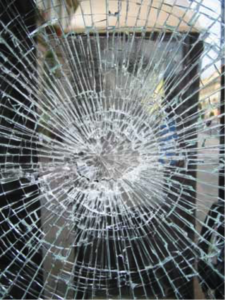PTSD can happen to you if you have ever been through a trauma.
 Trauma is a stressful event that happened to you, or you saw it happen to someone else, that was shocking and scary. Usually, you had no control over what happened and may have felt trapped with your life, or the lives of others, in danger.
Trauma is a stressful event that happened to you, or you saw it happen to someone else, that was shocking and scary. Usually, you had no control over what happened and may have felt trapped with your life, or the lives of others, in danger.
Roughly half of all women and 60% of all men will have at least one trauma in their lifetimes. While women are more prone to sexual assault and child sexual abuse, men are more likely to experience accidents, physical assault, or witness death or injury–such as combat vets and first responders.
• About 8% of the U.S. population will have PTSD sometime in their lives.
• About 5.2 million adults suffer with PTSD each year.
• 10% of all women and 5% of all men will develop PTSD at some point in their lives.
• Some ethnic groups, such as blacks and Hispanics, are more likely to develop PTSD since they are exposed to more traumatic events than whites.
Who is Prone to PTSD?
Although going through a trauma doesn’t mean you will get PTSD, you have a greater chance of developing it if you:
• were either the victim or witness to a trauma
• were seriously hurt
• went through a long-lasting trauma or something very severe
• thought you were in danger
• thought a friend or family member was in danger
• was not able to help yourself or a loved one during a trauma
You are also more likely to develop PTSD if you:
• had medical procedures when young
• were abused as a child, either physically, emotionally, and/or sexually
• have little support from family and friends
• have unexpectedly lost a loved one
• have had recent, life-changing events that were stressful
• drink a lot of alcohol or take drugs
• are a woman
• are young
• were adopted

PTSD often develops long after the traumatic event. So you may not link the symptoms you develop with the traumatic events that may have occurred years earlier. You won’t think that your anxiety, depression, fits of anger, or extreme fatigue have anything to do with a traumatic event.
You may seek help for these isolated symptoms not realizing you have PTSD. But PTSD requires its own treatment.
If you have PTSD, or think a loved one may, then get help. Without help, PTSD will begin to grow and develop new symptoms as the body struggles with the damage it suffered so long ago.








